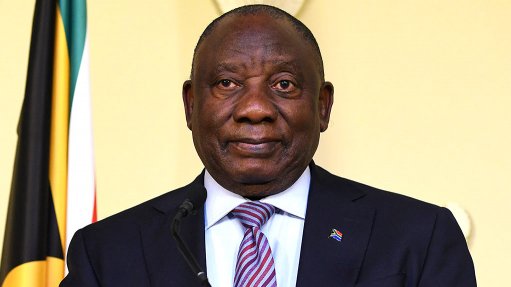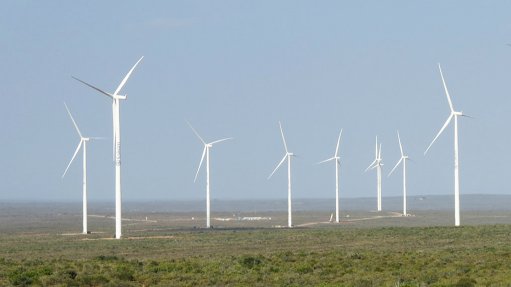Goodbye, blue sky
You can’t be a real country unless you have a beer and an airline. It helps if you have some kind of a football team, or some nuclear weapons, but at the very least you need a beer.”
This quote is attributed to Frank Zappa, an American musician.
Well, if this is the yardstick, then South Africa could soon no longer be considered a real country. On October 13, Anheuser-Busch InBev agreed to buy SABMiller in the biggest beer deal ever, valued at R1.5-trillion (yes, trillion).
What significant South African-owned breweries does that leave? For that matter, what South African-owned nonmining company does that leave? As for airlines, the South African government has three, but the jewel in the crown is, no doubt, the serial lossmaking South African Airways (SAA). It posted a R2.6-billion loss in 2014, a R1.2-billion loss in 2013 and a R648-million loss for the first six months of its 2015 financial year. It has also requested an additional R5-billion financial bail-out. As for football teams, the national team is languishing in the seventy-fifth position globally (compared with fifty-sixth in 1994), and seventeenth on the continent, a far cry from 1996, when it won the Africa Cup of Nations. Its participation in major competitions is largely dependent on South Africa hosting these events. This leaves nuclear weapons, which, officially, South Africa no longer possesses. That is just as well, considering the maintenance challenges.
The state of the nation, according to Zappa’s measure, is reminiscent of a country song. You know what they say: if you want to listen to a cheerful and upbeat country song, you have to play it backwards, for then the man’s wife or girlfriend, or both, returns to him, his horse loses its limp, his dog reappears from the grave, and he gets his house back and his pick-up truck.
So, let us return to our single remaining ‘salvation’ in the retention of our status as ‘a real country’ – SAA – which dates back to February 1, 1934, when government took over the assets and liabilities of Union Airways. SAA’s catch phrase in the early 1990s, if my memory serves me right, was ‘Now we’ll take more care of you’. Considering the present state of affairs at the airline, it would more appropriately be ‘Now you’ll take more care of us’ – that is if you are one of South Africa’s 4.94-million taxpayers (in 2014, the figure was 5.56-million) out of a population of 53.14-million, or 9.3% of the South African population.
SAA is in a crisis, no matter what definition of ‘crisis’ is used, and this includes the definition by Cooperative Governance Minister Pravin Gordhan, who, when commenting on November 12 on the water situation in the country, said that “a crisis would be when a problem is unmanageable.” But you decide. On November 18, SAA appointed its seventh acting or permanent CEO in three years. On the same day, it announced a half-year loss and requested further government guarantees in order to finalise its 2014/15 financial statements. This is on top of the R6.5-billion guarantee that it received from the National Treasury in December 2014. SAA continues to rely on debt funding.
In my estimation, SAA has, since 1994, received a total of R23.3-billion in government bail-out packages, excluding the R5-billion it has requested. Government bail-outs since 2013 amount to R13.35-billion, excluding the R5-billion. In other words, 57.3% of SAA’s total government bail-out packages since 1994 came in the past three years. As an SAA shareholder, owing to being a taxpayer, you surely cannot feel too pleased about this. If you were a private investor – shareholder – by now you would, no doubt, have phoned your broker with a single- word instruction: “Sell!” I am not sure who would be a willing buyer.
If you are the eternal optimist, you are possibly thinking that SAA is an ideal candidate for a turnaround strategy. Well, without taking up unnecessary space in this column, this has been attempted on numerous occasions in the past, the successes of which are evident. This is all we need, another turnaround strategy. In rugby, there is a term for that, ‘kicking for touch’.
So, why even have a national carrier? Could it possibly be so that South Africa’s most senior government officials could use it? Well, when last, if ever, have you heard of the President or his Deputy flying SAA? They do not but you should – proudly South African and all. On its website, under ‘A short history of South African Airways’, which was last updated on November 29, 2007, the airline states: “We became the proud official carrier of the South African rugby team, the Springboks . . .” But, alas, the Springboks too no longer fly SAA but rather British Airways.
Talking of British Airways, consider this: the Prime Minister of Britain, the fifth-largest economy in the world, his Ministers and members of the British Royal Family, including its princes and princesses, all fly British Airways. But in South Africa, investigations are under way on the possible purchase of a long-range jet for the President, reportedly costing as much as R4-billion. The President has referred all questions on the matter to the Defence and Military Veterans Minister.
You might be convinced that South Africa needs SAA to fly tourists to and from the country. But South Africa’s recently introduced ill-conceived and controversial visa regulations that have resulted in a 6% decrease in arrivals, the worst since 2009, when the last global financial crisis was at its worst. No doubt, the lack of tourists will feature somewhere in SAA’s justification of its dismal results. South Africa simply does not need a national carrier to bring tourists to its shores, when there are more capable and economically viable international carriers.
Even better, these carriers bring tourists to South Africa at no cost to you, the taxpayer, or ‘SAA shareholder’. These carriers would still require ground handling, airport and catering services. You do not need the existence of SAA to render these services. Just in case you were wondering, 70% of SAA’s traffic is domestic in any event.
If you are still convinced that South Africa needs SAA, since its departure (pun intended) would result in job losses, then consider this: according to SAA’s 2014 annual report, the airline employs 34 000 people, or 0.3% of South Africa’s total workforce. The same report states: “The group makes a significant contribution to the South African fiscus via income tax generated through employee salaries, value-added tax, and the aviation sector’s indirect and induced impact and passenger taxes, to make a combined total generated through the group’s economic footprint of over R4-billion.” This argument reminds me of a question my father used to ask: “So, how do you make a small fortune out of gold mining?” You start with a big fortune. You do the math. South Africa is throwing good money after bad by bailing out a company that, without government bails, cannot meet the criteria of a going concern.
Unlike South Africa’s manufacturing industry, which, in the mid-1990s, was forced to compete internationally, SAA is being protected from international competition. Bilateral agreements apply to international routes on a one-on-one basis. International bilateral agreements prevent more airlines from coming into South Africa. As a consequence, SAA is blocking demand.
The title of this article was borrowed from the iconic Pink Floyd’s 1979 album, The Wall, a double-vinyl album. This article is dedicated to Derek Otto, who introduced me to Floyd. Think of us when you are looking down; perhaps, you should even say a quick prayer, shed a tear or have a laugh at our expense. Au revoir.
Comments
Press Office
Announcements
What's On
Subscribe to improve your user experience...
Option 1 (equivalent of R125 a month):
Receive a weekly copy of Creamer Media's Engineering News & Mining Weekly magazine
(print copy for those in South Africa and e-magazine for those outside of South Africa)
Receive daily email newsletters
Access to full search results
Access archive of magazine back copies
Access to Projects in Progress
Access to ONE Research Report of your choice in PDF format
Option 2 (equivalent of R375 a month):
All benefits from Option 1
PLUS
Access to Creamer Media's Research Channel Africa for ALL Research Reports, in PDF format, on various industrial and mining sectors
including Electricity; Water; Energy Transition; Hydrogen; Roads, Rail and Ports; Coal; Gold; Platinum; Battery Metals; etc.
Already a subscriber?
Forgotten your password?
Receive weekly copy of Creamer Media's Engineering News & Mining Weekly magazine (print copy for those in South Africa and e-magazine for those outside of South Africa)
➕
Recieve daily email newsletters
➕
Access to full search results
➕
Access archive of magazine back copies
➕
Access to Projects in Progress
➕
Access to ONE Research Report of your choice in PDF format
RESEARCH CHANNEL AFRICA
R4500 (equivalent of R375 a month)
SUBSCRIBEAll benefits from Option 1
➕
Access to Creamer Media's Research Channel Africa for ALL Research Reports on various industrial and mining sectors, in PDF format, including on:
Electricity
➕
Water
➕
Energy Transition
➕
Hydrogen
➕
Roads, Rail and Ports
➕
Coal
➕
Gold
➕
Platinum
➕
Battery Metals
➕
etc.
Receive all benefits from Option 1 or Option 2 delivered to numerous people at your company
➕
Multiple User names and Passwords for simultaneous log-ins
➕
Intranet integration access to all in your organisation


















